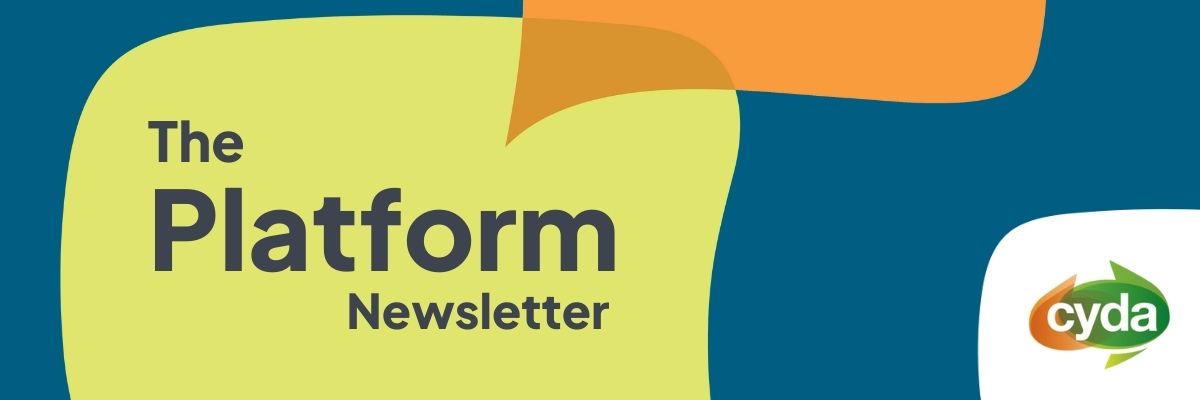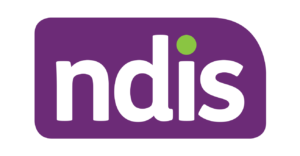Grace Garrahy talks about the many ups and downs of her journey accessing the NDIS.
My journey to accessing NDIS was long, with many ups and downs. As a teenager, I had been in and out of hospital with my mental health before receiving my current diagnoses. I desperately needed early childhood support and access to services. Before I had access to NDIS, my parents and I struggled to afford all these never-ending medical bills, therapies, medications, supports and assessments that I required. I needed access to regular support to help ease the financial burden off my family and mainly so I could be independent and live the life I wanted. We heard about NDIS and tried to apply for funding several times before approval.
When I initially applied for NDIS, I provided substantial evidence of my functional limitations surrounding my psychosocial disabilities, but was declined several times. It wasn’t until I was living in a community care residential unit for mental health where the occupational therapists and social workers on staff were able to help with the specific wording of my application that I was approved for NDIS funding. This attempt was also approved due to the autism diagnosis I received.
I was so grateful to have been approved and finally be able to start looking at living more independently with extra support. But there were still many difficult things, including that I needed to add a secondary disability once I received my Ehlers-Danlos Syndrome diagnosis. This was a lengthy process, basically having to redo the application process for NDIS funding but with the new diagnosis added. Having to go through this when I was struggling myself felt so defeating and exhausting.
Then comes applying through NDIS for assistive technology and aids needed to live as independently as possible. I have applied for maintenance funding for my certified assistance dog and a mechanical bed to help with positioning and my sleep, among other aids and tools. I also applied for a custom manual wheelchair, which still hasn’t been approved. All these applications took a long time with constant follow-up and fighting for what I needed.
Why is it so challenging for people living with disability to navigate the exhausting application process and continual justification for ongoing funding required even once approved?
Despite the difficulties of the application process, my ongoing NDIS plan is so meaningful and impactful on my life. I can now access support and services to live independently in the community and not rely solely on my parents to care for me. Although it’s still a constant fight, I can access assistive technology such as a custom wheelchair, mobility aids, sensory tools, shower chair, and many more. I can access allied health support such as physiotherapy, psychology, and occupational therapy to maintain my independence. I can access support workers and people to help me within my home and community. These tools allow me to attend university, move around my home safely, access the community, contribute to the economy, and do what I want meaningfully!
The positives don’t take away from the turbulent and challenging time it was to access the NDIS and how much of a constant fight it still is to access the things I need to live the life I want and deserve. It also doesn’t take away from the constant fear of my plan funding being cut or being removed because of the state our country is in with budget cuts to the NDIS. It doesn’t take away from the amount of people who get lost in the system, just as I was for such a long time, and cannot access this life-changing scheme.
I believe that all young people who have a disability or condition that impacts their functioning significantly deserve to have access to the scheme and these life-changing supports. If this isn’t possible, we need better access to mainstream services and support outside the NDIS. It is a fundamental human right to be able to access safe, supportive, and inclusive healthcare, disability support, and aids and equipment to have quality of life, especially for young people with disability.
So many things need to change to improve the NDIS and make it more accessible and equitable. I believe the NDIS should hire more disabled staff within their workforce. We should be the ones guiding the conversations and making decisions around what affects our lives and possess so much knowledge to bring to the service and care that participants receive. We also need to ensure that NDIS staff and Local Area Coordinators have a first-hand understanding of disability when reviewing a participant’s file and throughout the planning process.
I want young people to know they aren’t alone and that their experiences, voices, and journeys matter. As disabled young people, we should have a say in the decisions, policies, and conversations that affect our lives. NDIS needs to improve the quality, accessibility, and effectiveness of its services so that all people with disability have equal opportunity to live the lives they deserve.
This article is an extract from CYDA’s The Platform Newsletter. Receive monthly updates by subscribing below.

About the author:
Grace (she/her) is an OT student accompanied by her assistance dog, Sebastian. Grace’s lived experience navigating the world with disability, mental health, chronic illness and neurodivergence has led to her passion for working with disabled people. She is particularly passionate about representation, accessibility, inclusion and awareness for invisible disabilities.

The Platform is our newsletter for young people with disability, featuring interviews, opportunities and news on the issues that matter to you!







